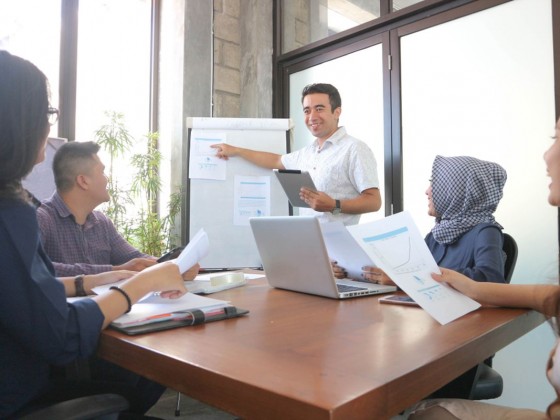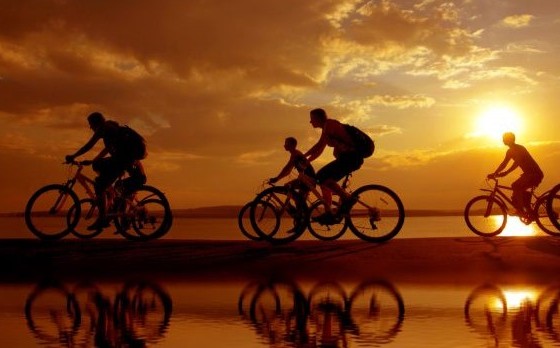by | Sri Widias Tuti Asnam Rajo Intan | Nurul Amira Mohd Izani
In Malaysia, and most other tropical countries, long school holiday season falls at the end of the year, stretching from early or mid-November until the end of December; whilst in US, Canada,
UK and most European nations, the holiday season is in the summer.
The way children spend their long holidays is changing in the 21st century. Various factors, including the growing number of single-parents and full-time working parents that have less time to supervise their children during school holidays; the advancement of technology that enables children to indulge in indoor activities usually involving a screen like watching television, browsing Internet and engaging in online social networks like Facebook at home; the obsession towards academic excellence; and the emphasis on future sport careers, influenced how children spend their school holidays.
SCHOOL WITHOUT SCHOOL HOLIDAYS?
In Malaysia, more often than not, students are deprived of their holidays during the months preceding the so-called ‘examination year’ when they have to sit for compulsory examination such as Malaysian School Certificate and Higher School Certificate that will determine their qualification for tertiary education. Obsessed with academic excellence, parents send their children to endless tuitions during the holidays. Schools too organized holiday classes as they compete to produce top students.
Instead of just focusing on academic activities during school holidays, there are also increasing trend in parents sending their children to art and music classes to nurture unique talent and aptitude in their children. However, there are opinions that children should also be exposed to enrichment activities that can increase discipline and inculcate positive values which could not be taught during a normal school session.
HOW MALAYSIAN CHILDREN SPEND THEIR HOLIDAYS
Malaysia is a multicultural and multi-ethnic nation with Malays, Chinese, and Indians forming the largest parts of its population. Each of these races has its beliefs, norm and practices in raising the children including the way of spending school holidays.
Irrespective of race, most working parents rely heavily on schools to keep their children safe and occupied while they are out working. However, during the school holidays, when school is out, these parents need to find alternatives and commonly, by sending the children to spend ‘quality-time’ with their grandparents. Some pare nts would apply for work leave and plan for a vacation to spend quality time with the whole family instead.
in malaysia, more often than not, students are deprived of their holidays during the months preceding the so-called ‘examination year’
For the Muslims, there is a rising trend to send young children for religious camp with religious programme, such as Smart Solat Camp that emphasise on the excellence of performing the solat (prayer), and Sunnah sport activities like archery, horse riding and swimming. These types of camps also emphasise on team building, self-motivation, increase confidence level with sessions of stage presentation, and outdoor activities.
Some prefer to send their children for skill classes such as art, music, craft, martial art and etc. For those who have family business, the children might be fully occupied by helping their parents in business activities such as at the workshops, groceries, and restaurants where the children are indirectly exposed to the real way of doing business and might inherit their parent business in the near future.
In some other cases, school holidays are when children from lower income families would be working at factories, restaurants, fast food outlets and retail stores to contribute to their household income. However, they would be facing competitions from foreign workers who are willing to work long hours with less pay.
EXTRACURRICULAR ACTIVITIES DURING SCHOOL HOLIDAYS
During school holiday, extracurricular activities are also being offered by school teachers to enhance and provide continuous learning, compliment the formal curriculum, and offer opportunities for students to develop new skills and hobbies.
 Students are given the opportunity to choose from a wide range of activities that can be divided into three categories – sports, club of societies and uniform bodies. Some of these programmes involved collaborations between different schools and age groups and are expected to give exposures to the participants on character building, teamwork, idea sharing and many other soft skills.
Students are given the opportunity to choose from a wide range of activities that can be divided into three categories – sports, club of societies and uniform bodies. Some of these programmes involved collaborations between different schools and age groups and are expected to give exposures to the participants on character building, teamwork, idea sharing and many other soft skills.
today, parents in malaysia have more options for scheduled programmes for their children
Sports excellence is getting more attention among parents nowadays. Young sports personalities such as Nicol David, Pandelela Rinong, and Aaliyah Yoong Hanifah have inspired the young generation as well as the parents to be seriously involved in developing sports skill. More and more parents are willing to send their children too sport workshops and classes such as badminton, squash, diving, football, sepak takraw, field hockey and swimming that are normally run during school holidays.
HOW STUDENT FROM OTHER COUNTRIES SPEND THEIR SCHOOL HOLIDAYS
Students from all over the world have different ways of spending their school holidays. In Australia, the summer holidays begin in December and ends in February. Australian kids typically spend their school holidays exploring the great outdoors such as camping, beach surfing, and mountain climbing.
In some countries, school holidays do not mean breaking from school work for students. A statistic showed that Singapore, that has school holiday period similar to Malaysia, is ranked as the 3rd in the world in term of most time spent on homework by the students; whilst in China, school break does not necessarily mean that students are free from classes. The norm for Chinese students is to take additional classes during their break or just study for their upcoming exams.
In the US and UK, the common practise for parents is to send their children for summer camp or to help community project. Kids typically choose summer camps with programmes that coincide with their interests.
In the Philippines, school holidays mean students are allowed to sleep whenever they want and wake up whenever they feel like it, and bumming around the house is the norm.
SCHEDULED PROGRAMME MORE INTERESTING!!
 Today, parents in Malaysia have more options for scheduled programmes for their children. The private sector is currently expanding their corporate social responsibility (CSR) and reaching out to the school children. Companies like the DreamEDGE and Aquaria KLCC are offering interesting educational activities during the school holidays.
Today, parents in Malaysia have more options for scheduled programmes for their children. The private sector is currently expanding their corporate social responsibility (CSR) and reaching out to the school children. Companies like the DreamEDGE and Aquaria KLCC are offering interesting educational activities during the school holidays.
DreamEDGE offers Robotic Classes to enhance STEM (Science, Technology, Engineering, and Mathematics) understanding among the young generation. DreamEDGE Robotic Class offers hands-on learning method with exposure on Japanese robotic programming method. Exposure using simplified C Programing Language within the robotic programing will enhance student Mathematics skill; develop mechanical engineering knowledge, increase creativity and improved problem solving skill.
School holidays are defined differently by the children, parents and private sector. Children look forward to the school holidays as the time for rest and explore activities other than school subjects. For parents, school holidays are the time for family bonding, especially with the extended ones. With the advancement of access and sharing of information, parents nowadays are looking into more balanced approach on how to spend school holidays effectively. Meanwhile, companies are offering programmes to share their knowledge and expertise to the young generation. Ultimately, whatever the school holiday programme offered, it is always about something fun, able to develop soft skills and enhance networking.
REFERENCES
- Marjohan Jamalis & Mohd Sofian Omar Fauzee, “Developing Human Value through Extra Curricular Activities”, The Journal of Human Resource and Adult Learning, Vol. 3, Num. 1, July 2007
- “Sleep with Shark”, Aquaria KLCC, 4 May 2016, http://aquariaklcc.com
- Cheow P. K., “Youth Lifestyles in Malaysia”, n.d, www.kfaw.or.jp
- “How Students from Other Countries Spend Their School Holidays”, LearnOwly, 4 Dec 2015, https://sg.news.yahoo.com
- Tina Carmillia, “Keeping up with the children”, Star2, 3 May 2015, page 2,
http://www.pressreader.com - “DreamEDGE Robotic Class 2016”, DreamEDGE, 5 May 2016, http://www.dreamedge.jp










